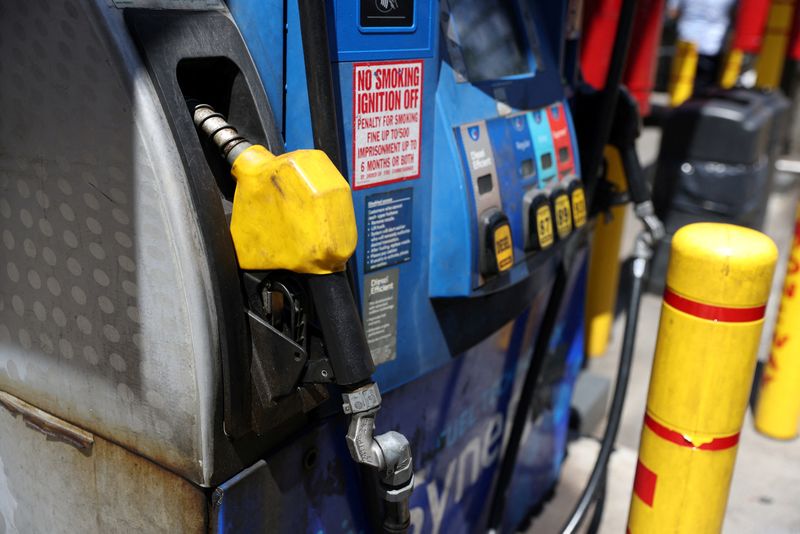By Shariq Khan
BENGALURU (Reuters) -Oil prices rose slightly in choppy trading on Monday, as investors balanced concerns about global demand growth against upcoming supply disruptions that could be exacerbated by political instability in Russia.
Brent crude futures rose 33 cents, or 0.5%, to settle at $74.18 a barrel, while U.S. West Texas Intermediate (WTI) futures rose 21 cents, or 0.3%, to settle at $69.37 a barrel.
A clash between Moscow and Russian mercenary group Wagner was averted on Saturday after the heavily armed mercenaries withdrew from the southern Russian city of Rostov under a deal that halted their rapid advance on the capital.
However, the challenge has raised questions about President Vladimir Putin's grip on power and some concern about possible disruption of Russian oil supply.
"There's not much geopolitical impact on the market now. It is dominated by economics, not geopolitics," Daniel Yergin, vice chairman of S&P Global, said on the sidelines of an industry event on Monday.
Price Futures Group analyst Phil Flynn warned that Russian political instability could worsen supply shortages in the months ahead due to Saudi Arabia's pledge to cut output from July, a risk of lower U.S. production and an imminent end to U.S. strategic reserve releases.
"The reality is (the Russian turmoil) is another risk against complacency in a market that has been counting on a future drop in demand to meet what will be a big drop in supply," Flynn said.
In an early indicator of future U.S. supply, the number of oil and natural gas rigs operated by U.S. energy companies fell for an eighth week in a row for the first time since July 2020, a closely followed report showed on Friday.

"(Beyond Russia) focus otherwise is on Saudi as the kingdom implements its additional production cut for July - something we should see in lower exports - as well as the looming Independence Day weekend and its impact on demand," Kpler analyst Matt Smith said.
Both Brent and WTI prices fell by about 3.6% last week on worries that further interest rate hikes by the U.S. Federal Reserve could sap oil demand at a time when China's economic recovery has also disappointed investors.